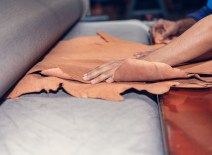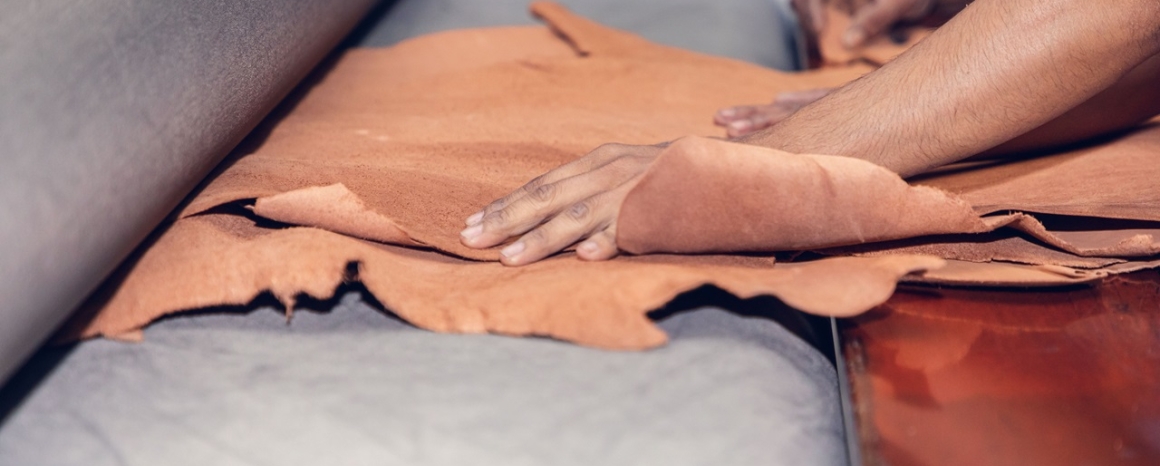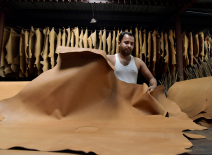In August 2024, ETI was one of 25 grantees selected under the Sustainable Manufacturing and Environmental Pollution (SMEP) programme, funded by UK International Development and delivered in partnership with UN Trade and Development (UNCTAD).
As part of the SMEP programme, ETI is implementing a project in the tannery sector in Bangladesh in collaboration with its consortium partners ETI Bangladesh, Bangladesh Labour Foundation (BLF) and Mondiaal FNV (FNV).
Many organisations, including the Asia Foundation and Human Rights Watch, have reported on the harmful and environmentally destructive practices of tanneries in Bangladesh. In spring 2025, the project carried out a baseline and environmental assessment in the Savar Tannery Industrial Estate, which confirmed these findings. The project found that over half of the workforce (56%) are in informal jobs, rising to 70% among women, leaving many without protections or benefits. Occupational health and chemical safety standards are dangerously weak, disproportionately affecting women. Most tanneries fall short of Leather Working Group (LWG) environmental requirements, limiting business opportunities and leaving environmental risks unchecked. While workers and communities recognize the pollution, they lack the resources to protect themselves or respond effectively. If unaddressed, these impacts threaten the economic sustainability of Bangladesh’s leather industry and the livelihoods of its workers. Failure to meet international standards risks turning buyers away. (For more information on baseline results and learning, read our paper “From Pollution to Progress”.)
The project consortium works with 40 tanneries in Savar to share knowledge and implement systems designed to mitigate the environmental and social impacts of leather manufacturing. The aim is to enhance workplace conditions, promote sustainable practices, and support the industry in Savar to meet international standards by implementing a three-pronged approach:
- Collaborative development and implementation of environmental and social management systems (ESMS) in 40 tanneries to improve production efficiency. ESMS will be enabled through peer-to-peer knowledge sharing to grow worker and management skills and understanding and mitigate environmental and social risks associated with tannery production.
- Incentivising investment in risk reduction through peer-to-peer knowledge sharing on high-value market requirements, networking with potential business partners, and aligning stakeholders with international standards through active advocacy and collaboration through mechanisms such as the Leather Development Forum (LDF).
- Aligning local and international networks in advocacy efforts to ensure forward-thinking infrastructure investment, improved application of human rights and environmental due diligence (HREDD), and engagement with supply chain partners in collaborative harm reduction initiatives.
From an environmental perspective, the project is expected to contribute to reduce GHG emissions by 1,235 tCo2 annually across the 40 tanneries' main operations by the end of the project.
- To date, the project has conducted an environmental gap analysis in the 40 tanneries and assisted each workplace to develop an action plan to implement a functional Environmental and Social Management System (ESMS). The project team has trained a total of 836 people: 272 managers (all male) and 564 workers (38 female and 526 male) in chemical management, waste and water handling, safety, and social dialogue. In addition, awareness-raising activities have reached 1,864 people across the 40 tanneries, engaging tannery workers, union leaders, and factory management in discussions on rights, safety, and environmental responsibilities. The project has also supported the formation of 47 committees, comprising 21 Anti-Harassment Committees and 26 Safety Committees.
The Savar project demonstrates that the leather sector faces complex challenges, from health and safety risks in tanneries to broader issues such as animal welfare, deforestation, and impacts on Indigenous communities. Brands are expected to address these risks through HREDD – an ongoing process of mapping supply chains, assessing risks, engaging stakeholders, and taking action.
To support brands and retailers beginning their HREDD journey in the sector, the project engaged Beyond Sustainable Retail Group to develop an introductory guide to HREDD in the leather industry. It aims to:
- Raise awareness of key risks and good practice approaches
- Direct brands to further research and resources
- Encourage meaningful action to strengthen due diligence across supply chains
From Pollution to Progress
Getting Started on Leather Due Diligence: A good practice guide for brands and retailers



